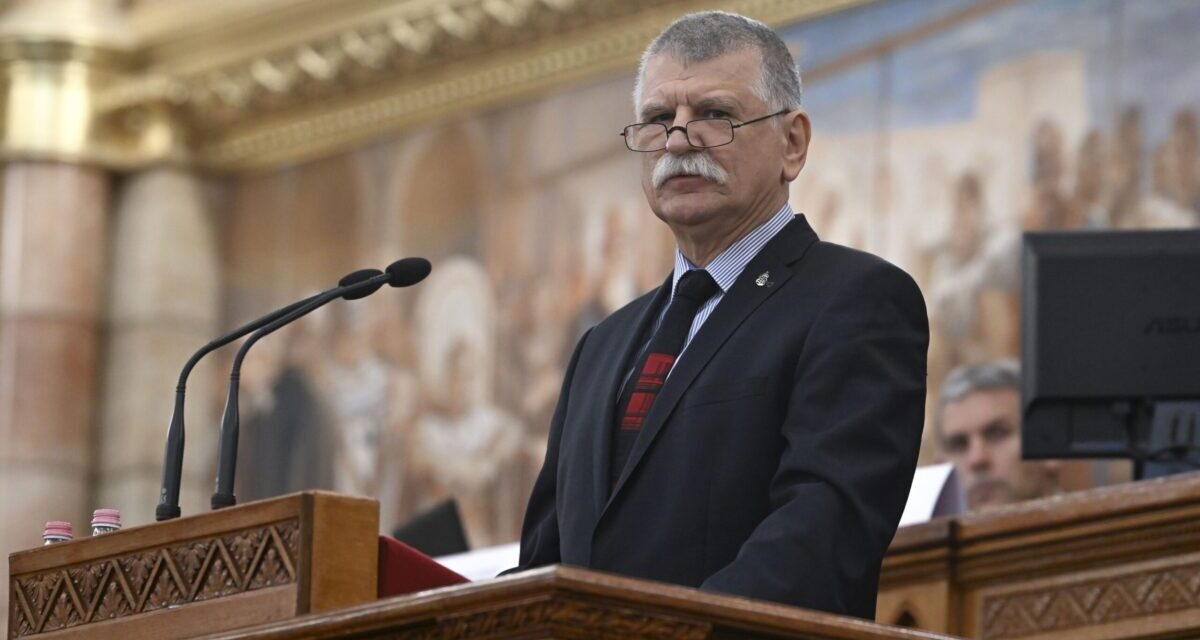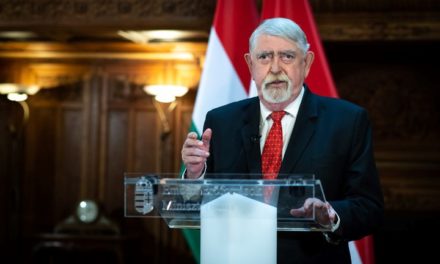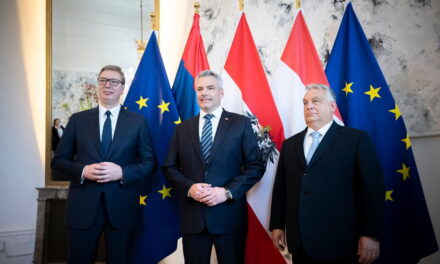Those who want to stifle the national identity of the European people actually want to stifle Europe politically and economically.
The United Nations should initiate the addition of a right that has been painfully missing, the right to national identity, to the list of the latest generation of universal human rights - suggested the President of the Parliament at the inter-parliamentary conference on cultural heritage and the identity of national communities held in Budapest on Thursday.
László Kövér emphasized: the right to national identity - which the Parliament included in a resolution on June 16, 2022 at the initiative of the Forum of Hungarian Representatives of the Carpathian Basin - is the right of every person to freely inherit from their ancestors their mother tongue, culture and the homeliness of their homeland, as well as you can freely pass it on to your descendants.
All of this could be a useful legal tool for the protection of general human dignity, which could strengthen ethnic peace, security and stability not only in the Carpathian Basin, not only in Europe, but everywhere in the world, he noted.
The implementation of this Hungarian proposal would mean progress in the substantive assurance of human rights and the strengthening of democracy worldwide, and in Europe it would strengthen not only national minorities, but also the cooperation of European national states and thus the European Union, he said.
"Hungarians deeply believe that Europe's cultural heritage and Europe's future are rooted in the European creative force, and the deepest source of this creative force is the identity of the European nations. The national identity of Europeans is a state of mind, the content of which is given by their mother tongue, their Christian-rooted national culture and the sense of homeliness of their homeland," emphasized the speaker.
He pointed out that the right to exist of European national states is given by the existence of nations, and the existence of nations in a mental sense is ensured by national identities.
Therefore, the political, economic, and cultural and psychological attacks against European national states, as well as against national identities, nowadays have a specific purpose.
Those who want to destroy the current European Union, based on the cooperation of sovereign European national states, and then transform it into a federal United States of Europe, have the primary interest of abolishing national identity, since in this way the European national states will lose their right to exist, which is guaranteed by the bonds of their citizens, and thus they will be easier to integrate into a federative entity that is completely alien to the European historical heritage, he explained.
However, he stated: according to the Hungarian point of view, the implementation of the plan of the United States of Europe is not only a political nonsense, but also a cultural anthropological impossibility, because there is no independent European identity, only the nations have an identity in Europe.
Therefore, those who want to stifle the national identity of European people today actually want to stifle Europe politically and economically, he said.
He added: in the face of all anti-national political propaganda, national identity in Europe is a resource, not a source of danger, not a source of political destabilization, but can strengthen political stability and remain a competitive factor in economic terms.
László Kövér cited Article 4 of the Treaty on the European Union, according to which "the Union respects the equality of the member states before the treaties, as well as their national identity, which is an inseparable part of their basic political and constitutional organization, including regional and local governments."
This basic EU document therefore uses the phrase national identity, and recognizes and guarantees it as a right in the relationship between the EU and its member states.
However, neither in this treaty nor in other sources of EU law have so far defined the concept of national identity that can be interpreted both politically and legally, he suggested.
He highlighted: the subjects of national identity are the national communities living in the territory of the given state for a certain period of time, regardless of whether they live in a numerical majority or a minority. The state as an organization, as a set of legal and political rules, displays and represents the identity of the national communities living in its territory.
National identity belongs to the citizens of the state, and this identity, as a state of mind and a system of values, stems from their mother tongue, culture and homeland. László Kövér stated that the state is called upon to protect these identities, which characterize both national communities living in a numerical majority or minority.
MTI
Cover photo: László Kövér, President of the Parliament
Source: MTI/Szilárd Koszticsák













